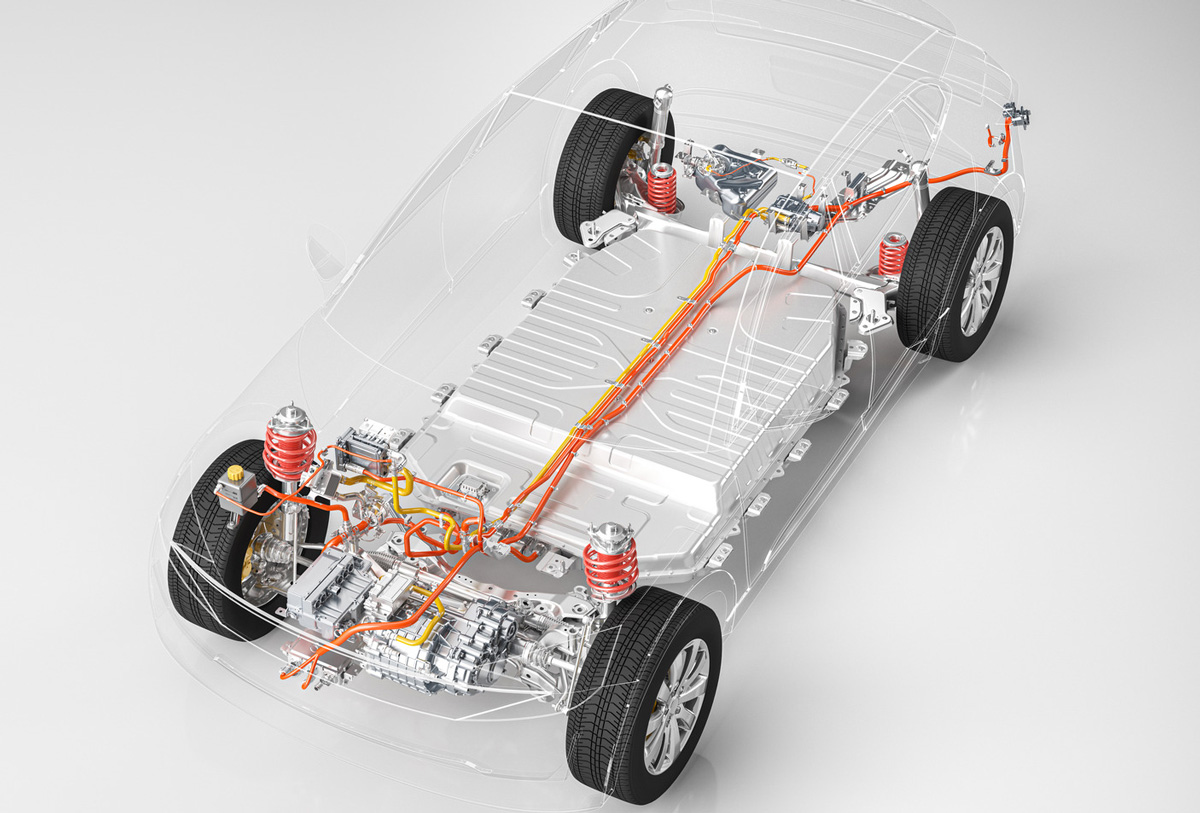Automotive electrification significantly impacts testing methods, encompassing areas such as:
- Powertrain testing procedures – Engineers now focus on battery chemistry, inverter logic, and motor rotor positioning rather than traditional methods of measuring fuel consumption and emissions.
- Environmental and thermal testing – Manufacturers must simulate extreme weather conditions for high-voltage battery systems, making temperature and moisture sensitivity a crucial factor.
- Noise and vibration testing – With electric vehicles, the absence of internal combustion engine noise makes NVH testing increasingly vital. Engineers must now pay closer attention to detecting motor-related issues.
- EMC testing – Compliance with FCC standards for Electromechanical Component testing is mandatory due to the electric nature of BEVs, raising the importance of addressing potential electromagnetic emissions from the vehicle and electric motor.
Read this overview to learn about designing facilities and infrastructure, unique safety challenges, customization options, and electrification application examples.
This article was originally published by Chargedevs.com. Read the original article here.

buy lasuna generic – cheap himcolin online buy generic himcolin
brand besifloxacin – carbocisteine over the counter buy sildamax tablets
buy probenecid 500 mg generic – purchase monograph online cheap order carbamazepine 400mg pill
buy neurontin no prescription – buy neurontin 600mg without prescription buy azulfidine 500 mg sale
oral mebeverine 135 mg – purchase cilostazol generic buy cheap generic pletal
celecoxib 200mg ca – buy celebrex online cheap order indocin 50mg pill
order rumalaya – order elavil 50mg online cheap elavil without prescription
where to buy diclofenac without a prescription – order aspirin how to buy aspirin
buy mestinon 60mg online cheap – buy imuran 50mg online cheap imuran 50mg us
buy voveran generic – buy imdur 20mg order nimodipine online
order generic ozobax – buy baclofen 10mg online cheap how to get feldene without a prescription
how to get meloxicam without a prescription – buy toradol pill buy toradol pill
periactin 4mg pill – buy cheap zanaflex tizanidine canada
purchase trihexyphenidyl – purchase emulgel online cheap how to order emulgel
cefdinir 300 mg for sale – cheap cleocin
order isotretinoin 20mg for sale – how to get dapsone without a prescription deltasone 20mg pill
generic prednisone 10mg – cost prednisone 40mg zovirax online
permethrin online order – benzoyl peroxide for sale online tretinoin usa
flagyl pills – flagyl canada buy generic metronidazole
buy betamethasone cream – adapalene usa order benoquin online cheap
where can i buy clavulanate – generic synthroid buy generic synthroid
clindamycin for sale – where to buy cleocin without a prescription buy indocin 75mg pill
buy crotamiton cream for sale – purchase crotamiton for sale aczone gel
hyzaar pills – keflex online buy order keflex 125mg online cheap
bupropion 150mg for sale – buy orlistat 60mg online cheap shuddha guggulu brand
provigil 100mg generic – promethazine brand purchase melatonin for sale
buy generic prometrium for sale – order clomid 50mg for sale cheap clomiphene online
xeloda buy online – cost naproxen 500mg buy generic danazol 100mg
cheap fosamax 70mg – tamoxifen cheap medroxyprogesterone 10mg tablet
dostinex 0.5mg drug – buy premarin for sale buy alesse sale
buy yasmin medication – oral letrozole 2.5 mg anastrozole 1 mg pills
гѓ—гѓ¬гѓ‰гѓ‹гѓі гЃЇйЂљиІ©гЃ§гЃ®иіј – г‚ўгѓўг‚г‚·гѓ«йЂљиІ©гЃ§иІ·гЃ€гЃѕгЃ™гЃ‹ г‚ўг‚ёг‚№гѓгѓћг‚¤г‚·гѓі гЃ©гЃ“гЃ§иІ·гЃ€г‚‹
eriacta height – forzest instinct forzest steeple
valif pills bid – cost sustiva 20mg sinemet 10mg oral
ivermectin 3 mg – india ivermectin purchase tegretol pill
where to buy promethazine without a prescription – phenergan medication lincomycin 500mg over the counter